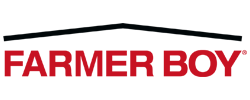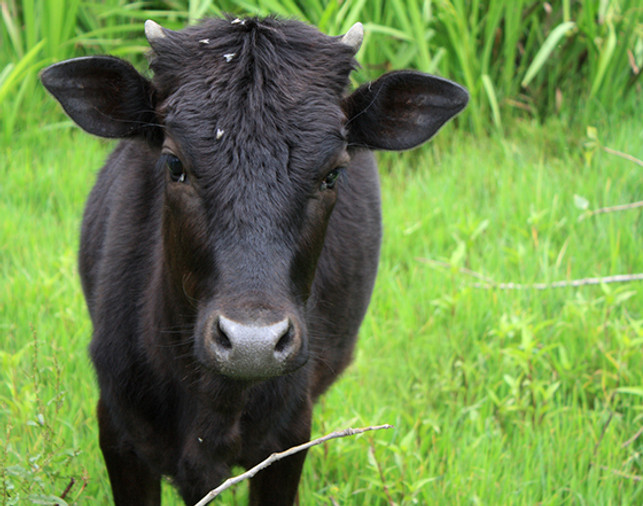Preparing Your Barn For Summer: Warm Weather Pest Management
May 3, 2022
Summer means warmer weather and milder conditions for many parts of the country. While this can be a relief from winter, the summer is also a prime time for certain pests.
Warm weather pests range from insects to rodents — and each can be harmful to livestock and humans. Learn more about how to prevent and eliminate summertime pests in your barn.
Preventing Summer Insects
Most insects become more active during warm weather. We share tips for preventing infestations from some of the most common summertime insects.
Flies
Flies are a significant livestock pest. There are three species of flies that are most prevalent around livestock:
●Horn flies (Haematobia irritans)
●Stable flies (Stomoxys calcitrans)
●House flies (Musca domestica)
Horn and stable flies are especially troublesome for cattle and poultry. Both subsist on blood meals. Their bites irritate livestock and can lead to skin infections. This can result in decreased milk and egg production.
Managing fly infestations in barns includes three steps:
- Keep the barn clean. Regularly clean manure and standing water to limit infestations. Livestock waste treatments can also help make manure pits less appealing to flies.
- Install traps and screens. Using fly traps inside of your barn can help keep populations manageable while screening can prevent insects from entering and starting an infestation.
- Use pesticides. If other measures fail, pesticides can be applied to eliminate large fly infestations. Be sure to follow all directions when applying any pesticide product, and use only as directed.
Wasps & Hornets
Unlike flies, wasps and hornets are not naturally attracted to livestock or their waste. However, stinging insects can still build nests in or around barns and other animal housing.
Wasp stings cause pain and discomfort to livestock and humans. In large volumes, stings can even cause severe reactions in animals and should be treated as veterinary emergencies.
Preventing wasp and hornet infestations involves two steps: monitoring and removal.
Regularly inspect barn overhangs and eaves for signs of nest development. These are the most common areas for nests to occur.
If a nest is found, promptly treat and remove it. You may need to use an insecticide to first eliminate the wasps before removal. Avoid using insecticide sprays in areas where the chemicals can come into contact with livestock, their feed, or their water supply.
Beetles
Beetles are significant barn pests. Some, like the powder post beetle, can cause costly damage to wooden structures. The litter beetle infests poultry litter and can cause similar damage. Though rare, litter beetles can also harbor harmful bacteria like E. coli.
Other beetles, like weevils, can contaminate livestock feed. In fact, weevil activity can increase moisture in corn or grain, which can create a more suitable environment for Aspergillus flavus fungus and aflatoxin development.
Preventing beetle infestations inside of a livestock barn can be difficult. Wooden structures are the most likely to be infested. Be sure to monitor for signs of structural damage in support beams, like bore holes. Always be sure to check any wood for signs of an infestation before bringing it into the barn.
Boric acid is an effective beetle treatment that can help eliminate current infestations and deter future ones.
For new barn builds or retrofits, consider installing PVC wall panels. They’re easy to clean and can help prevent pest infestations.
Summer Rodent Pest Prevention
Although commonly more of an issue during winter when they need a warm shelter and plentiful food source, rodents are still a year-round pest that can infest your barn during the warmer months of the year.
Learn how to prevent and manage summer rodent infestations.
Rats & Mice
The three most common types of rodents that infest barns are:
●Deer mice
●House mice
●Brown or “barn” rats
These three pests are more common during the winter months, when they seek a warm shelter and steady food supply. However, infestations can persist into the warmer season.
To prevent rodent infestations, be sure to:
●Seal any points of entry. Mice are able to fit through only a quarter inch across. Regularly inspect the doors, windows, and barn foundation for obvious points of entry. Seal gaps and replace broken doors or windows.Install screens over ventilation.
●Remove clutter and debris. Be sure to remove excess debris and equipment from both inside of the barn and outside. Keeping equipment and debris away from exterior walls is especially important. These are areas where rodents may nest.
●Securely store livestock feed. Rodents will happily eat loose feed. Be sure the feed is secure and any excess is cleaned.
Eliminating rodent infestations can be difficult. Traps and bait stations can be used to help control populations and prevent infestations from growing.
Regularly monitoring for signs of mice or rats is also essential. Treating an infestation in its earliest stages is much easier than trying to remove an established one.
Squirrels
Although much less of a nuisance than rats or mice, squirrels can still cause significant damage to your barn’s structure, electrical wires, and equipment. Squirrels can also carry disease, including bacterial infections, that may spread to livestock.
Preventing squirrels from getting inside of a barn includes many of the same practices as other rodents:
●Seal holes, cracks, and other points of entry
●Remove weeds, debris, and equipment close to exterior walls
●Regularly monitor for nesting signs, like droppings and debris
Removing a squirrel from a barn requires trapping it or using rodenticide. Always follow rodenticide directions and use only as specified on the label.
Shop For Pest Prevention Supplies From Farmer Boy
An ounce of prevention is worth a pound of cure. A thorough pest management plan and prevention measures are the best form of pest control. At Farmer Boy, we have a full selection of pest treatment supplies to help you keep your livestock safe.
Shop online for bait stations and insecticides to find everything you need for pest control. Not sure what product is right for your needs? Give our customer service team a call at 1-800-845-3374 for help.


